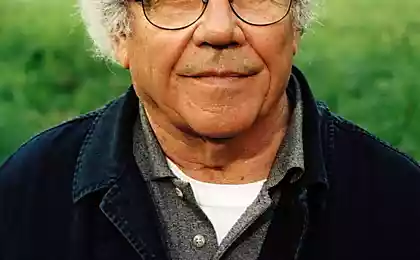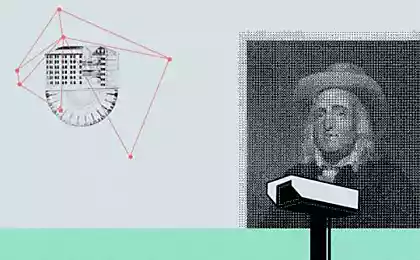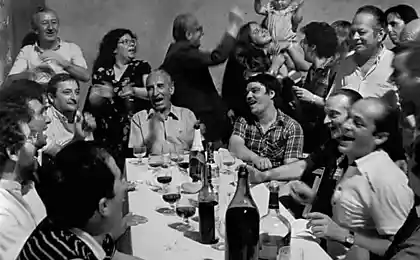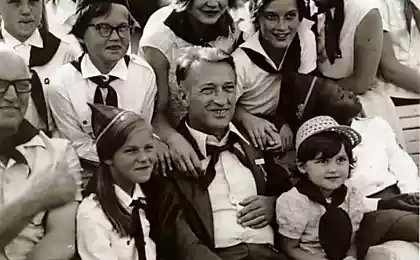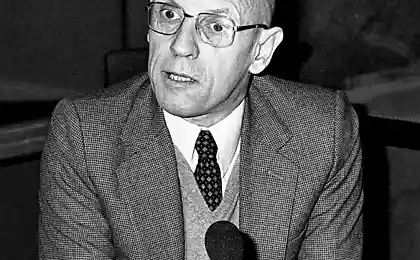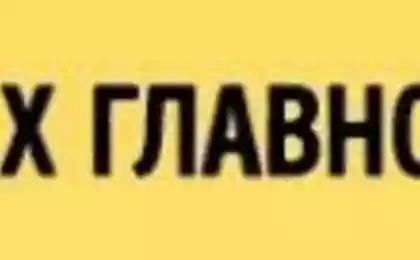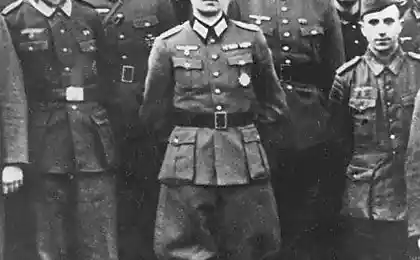695
Philosopher Gianni Vattimo: People who believe in the truth, is extremely dangerous — it savvy agents
Nine million eight hundred fifty eight thousand three hundred eighty four
Italian politician and philosopher Gianni Vattimo is one of the leading theorists of postmodernism. According to him, modern culture is characterized not only by processes in the art, but by phenomena in the socio-economic (the onset of the post-industrial era) and religious (secularization and the advent of the post-Christian era). "Theory and practice" talked with an Italian scientist about subjectivity and interpretation as the main deterrent mechanism against totalitarianism and overlap.
— At the time you extremely were critical of the principle of objectivity, which interferes, in particular, and in public practice, reducing her to totalitarianism.
For me it is an open question. On the one hand, I want to make a revolution, or just some way to transform the group to which you belong, my life, I need a strong subjectivity, in order to be able to want things, make some decisions. On the other hand, the first decision one should take is a rejection of the culture of its subjectivity. In this sense, I remain a Christian. It's an ethical position. I do not want to assert his subjectivity, nor to deny it — I need to be in community in every sense of the word. It is foolish to think that liberation can be achieved, developing ego. No! The path of emancipation — finding connected with their horizon, their basis, their community. So I'm not so worried about this problem. Perhaps I somewhat exaggerated its importance due to the fact that he had studied Nietzsche, who proclaimed the will to power, but at the same time was an opponent of subjectivism (there is an internal contradiction). He criticized the structure of the Christian bourgeois subjectivity, Platonov structure of ethics, the idea of the domination of reason over passions and instincts. It is not surprising that he didn't like it — it was the same poor old Professor like me, not a liberal.
In fact, we are talking here about what Heidegger called "Eigenschaft" — in the sense of authenticity/specificity. He later interpreted this term differently — as facilities/possession, in a sense, self-control. This term is associated with another term — "er eigenen" — are experiencing a moment of life. That is, it was a shift from the existential position of Heidegger the 20's to the other point of view — from the analysis of subjectivity to the analysis of the necessary accessories to a certain historical horizon. By the way, what you would call good or bad? Can we in this matter to rely on Kant's "moral law inside"? Not think. That is, you believe good and bad is something that is recognized as such in your culture — not just on a superficial level of publicity, but in the thicker deep historical structure of society. It was, by the way, is true for Wittgenstein. He also rejected the "natural moral law". There is acceptability to others, those with whom you live, but it is not just once and for all established distinction between "good" and "evil". It's not a question of conformism and the simple adoption of a common culture, common ideas, common norms. No! It is necessary to criticize them, fight with them, but to engage in dialogue and to consciously take our own position. Of course, you can not fall into the illusion that you are a prophet. In many ways, so I feel more of a Communist than a Maverick.
"What you would call good or bad? Can we in this matter to rely on Kant's "moral law inside"? Not think. You think good and bad is something that is recognized as such in your culture — not just on a superficial level of publicity, but in the thicker deep historical structure of the society."
Individualism is always associated with what Heidegger called the metaphysical — with the illusion that we can take our own position in the dispute, grasping the first principles of relations and to talk about what is available to you understanding the "natural laws" of absolute good and absolute evil, and the like. In fact, in this case, you grasp the principles of its era, situation, their beliefs, ideologies and so on. That's actually what was left of my criticism of subjectivity — I do not share the Cartesian principle according to which a clear idea about the subject is true. In this view can affect absolutely banal things like indigestion, or memories of how the grandmother has caught you stealing jam. So my consciousness is deterministic to the extent that I just can't believe him as incarnation of my subjectivity, something absolute available. That's why I, including at terminological level, accept the determination of the truth, the American and British philosophers-pragmatists, "Truth — what is good for us."
You say, of course, that if you say "we", it means also "for us", "our society", "for our time". In General, it is the pragmatism associated with historicism. I can't make absolute decisions — imaginary absolute solution gives you in a subject, endowed with the most obvious objectively inherent in society features. People who believe in the truth, is extremely dangerous — are agents of "common sense". And if I claimed I was a Communist in the West are always asking me "How can you be a Communist?"—implying that I am out the logic of asking this question. But this logic, in turn, historically conditioned as the logic of financial capital. In many ways, what is considered truth is the only truth limited inside the structure of the mainstream.
It's simple — you can not write Pro-Communist articles in major Italian Newspapers. If you are a philosopher, you can, of course, to introduce communism as a pure utopia that has no place in reality. But you will not be taken seriously. In many ways, the subjectivity in modern times has been associated with the fundamental idea of an ability to capture the absolute truth. And it is a longstanding Western tradition, originating from the "Feast" of Plato — love is pure intellectual, pure intellect to ideas. And this is ultimately impossible. Plato himself was an aristocrat and not seen in ordinary artisan ability to discover a pure mind, of course, he didn't rule out. But he was the one who was moving in the horizon views of his contemporaries — the same aristocrats. In one of his dialogues, by the way, it is possible to find a moment in which the servant proves the Pythagorean theorem, but still he does it under the strict guidance dedicated. In short, a slave can become a decent reactionary, being reactionary slave to the same master. This idea of truth for me now is a big problem. If we take Economics, a leading economic policy of Europe now, we find that economists only pretend to know everything objectively. And their knowledge is restricted to a specific logic defined by the system, prejudices, tools, and many others. But that is what we are suffering — they actually show in practice their wrongs. By the way, here is the combination of theories with practices.
Let's go back to your old thesis of the society of non-violent communication. You're talking about the legitimacy of all interpretations in the framework of such a society. I remember at the time, Deleuze was credited with Foucault is that he taught us the principle: "to Speak for others is meanness." Perhaps you share this approach. But will not interrupt the communication as such? After all, the conversation disappears as soon as it makes no sense to challenge a particular interpretation?
— Yes, but the interpretation — the method of equivalence, description of something perceived with your own eyes. And here communication becomes possible due to the fact that your eyes is not just your own eyes. They eyes of the group. Because you speak the language, therefore, you present your interpretation inside a certain structure, language that you share. Otherwise, you would not be able to communicate. Well, or would have passed into the language. But again — we are talking about language. Largely any interpretation is a way of relationship with the word (or words) in other words we speak when communicating. We need a common language in the first place. So that interpretation and offer interpretation in this case is the mode of motion in General language — what Saussure called the dialectic of words and language. In other words, there is a common language used by me in the sense that you can understand or not, but it is the basis for understanding. And thus, if I Express my interpretation, you didn't leave her side, and interpret it in turn. That is, it is not about the accidental collision of two objects. We speak to each other, listen to each other, understand each other, meet each other, tell each other where we went wrong, where do not understand each other, what did not see. In General, it to a greater or lesser extent is dialogue. Interpretation can't legitimize themselves. They do this through explanation.
"To insist on the interpretation — so to criticize the official truth. We know that it is also an interpretation, this is important because if you open that state the truth, the truth of the Pope or the Central Committee — only interpretation, you have the freedom to challenge it."
The idea of plurality of interpretations is important due to the fact that for me it clarifies the following: no pure reflection of things such as they are. It starts with Kant, who spoke about a priori forms, which for him was universal. That is, in his case, it was about the invasion of subjective knowledge, but it was not so important, for any thinking being to behave similarly. So then it was about a universal subjectivity, and in fact — objectivity. But after Kant had appeared and the historical consciousness — the a priori forms are historically mobile. The attitude now is not determined by Kant and Hegel, in terms of historicism.
To insist on interpreting the means to criticize the official truth. We know that it is also an interpretation, this is important because if you open that state the truth, the truth of the Pope or the Central Committee — only interpretation, you have the freedom to challenge her. The truth is the result of agreement, rather than a simple reflection. I don't see the truth — I see things from a certain point of view, and it seems to me such, as I see it. If my interlocutor has no objections, we go ahead. Here I agree with Popper. The truth is something that is still not refuted. This understanding is opposed to authoritarian thinking, which it appears that he is the truth that all must accept. Is that enough? Anyway, I think so. Why should I believe that my eyes are objective universal truth for all times? This is only true situation we can take.
Eighty five million one hundred fifty one thousand nine hundred seventeen
— You also talked about society total communication, and, therefore, about the society in which it is difficult to create beniaminovich of the aura of works of art. What happens to the latter?
My aesthetic vision is determined by two principles. First and foremost I must mention my teacher from Turin, Luigi Pareyson. Don't know Il he translated into Russian, but in any case, he created an aesthetic theory, according to which the work of art is an example of a successful form. This is difficult to say, but, in essence, the question was: what would I call beautiful? Pareyson, examining the aesthetics of German idealism, came to the conclusion that a work of art is the successful embodiment in the form of artist. By the way, will turn to Hegel in his the interpretation of a work of art is the perfect interpenetration of internal and external aspects. In the work of art, nothing unexpressed. That is, the expression, artistic statement, identified to a greater or lesser extent, intent, intention. And it was the idealistic argument concerning the beautiful. In General, idealism and philosophy was the perfect embodiment of ideas. So in modern times the work of art and it was such a perfect embodiment of the idea in the material. Even in the ethics it was about the realization of positive intentions. But if you're actually a bad person, "good intentions" is able to lay the road to the Gulag. Therefore, it is impossible to speak about the beautiful out of touch with moral. In short, Pareyson embraced the tradition of German idealism.
Heidegger also characterized the work of art as a working, valid truth: Ins werk setzen der wahrheit. He wanted to make truth work ("the truth of things himself believes in creation" or "art is a work of truth in reality"). Of course, the first thing you think is true and what you Express in the artwork? So, that's the important thing — it is impossible to think in terms of successful implementation. We should talk more about the historic dedication. That's why we're talking about original works of art. And this was vital for the New time, the artist was conceived as a genius. But Heidegger takes it all and tells about the work of art as a valid truth. But this may not be the truth of the judgment. Does it make sense to write a poem about what it is snowing or raining? So what is the truth makes the work of art?
In fact, the work of art holds the historic initiation of the new language. My French friend, Michelle Dufrenne, who died many years ago, explained this idea of Heidegger, entering to determine if it is a new term quasi-sujet — "almost subject". That is, the product operates. Suppose if I know you, I do not think, not ponder over what is before me another man, or especially if I fall in love with someone. Also with art — if I read Dostoevsky, Tolstoy, Rilke, is not just another book — something happens to me. In this sense, Heidegger talked about the discovery of truth. You have in mind in the first place having the best examples of Western literary tradition — the Bible, Dante, Shakespeare, about which you just remembered because they initiated a certain situation. Thus, the work of art belongs to the history it reveals, invents a new paradigm. But in the same essay, where Heidegger speaks of the work of art as existing the truth, he notices that something similar happens with the political order, that is, to create a work of art — to make a revolution. He didn't say more about the political order after this essay, because there was one, to put it mildly, a hitch — Heidegger, after all, was once a Nazi. After the war he no longer wanted to participate more in politics. So he left himself to consideration only of the intellectual relations to the work of art.
"Paraison, examining the aesthetics of German idealism, came to the conclusion that a work of art is the successful embodiment in the form of artist. That is, the expression, artistic statement, identified to a greater or lesser extent with the intention, intention".
Understanding Heidegger works of art strongly associated with the history of the avant-garde in the twentieth century, for it is impossible to say that cubism is just another form of representing reality. Yes and no! Or if Duchamp sends a urinal to the exhibition, we cannot say: "Here's another work of art." Or when Joyce writes "Ulysses", it does not create just another novel reflecting others. It is a kind of revolution. In this sense, Heidegger was an avant-gardist and largely substituted their understanding of works of art pending political revolution. I'm doing the reverse operation — start a conversation about the work of art to come to the question of political revolution. But in many ways I find it important to emphasize the following: the work of art changes something in history. Changes a person, but never doing it individually — you on mind you, but in history. So if you in these terms consider the policies, then you have a theory of revolution.
But whence comes art? Here we are faced with the romantic aspect of Heidegger and his connection with politics. The revolution can not be a simple change in the society. It's a coup. And it's not so easy to understand. Most important here is the historical innovation. Innovation in the history of the aesthetic of the subject that creates the work or enjoy it, or innovation in the history of society. Even artists less and less work for the exhibition, less create to be exhibited in the salons. They create events, installations, include other circumstances. You can always stay in the illusion that the painter creates a new painting that you can buy, sell, hang in your cabin or put in a Bank cell. But then just stands out in contradiction of the idea works valuable in itself, that which Benjamin called the fetishistic value of the work of art. So in many ways I think the idea of Heidegger is comparable to the intention of the best artists (the best, of course, in my understanding) who are trying to create not so much a product of how much the event.
Nietzsche somewhere there's a saying that says that we no longer belong to the era of art that we don't appreciate. By the way, as Nietzsche expected the revolution in the arts, in particular, he had high hopes for Wagner, even if they are not met. More importantly, the artwork supports the expectation. Waiting for the emergence of a valuable object. And it is very beniaminovich approach.
Five million nine hundred sixteen thousand nine hundred one
That is, if we continue this comparison, you will notice that all revolutions happen unexpectedly and in exactly the same way in our era may appear larger works just embodies the active principle of truth.
— Yes, of course. But honestly, from the revolution I expect much more than art. Don't know what I now would call a work of art. The usual piece from the exhibition, as I already said, too much associated with the market, market promotion, and other such things. By the way, this does not mean that I would have refused from the idea to hang at home on the wall of my favourite painting by Matisse or Klee. But I no longer perceive the web as a powerful event in history — no, they'll just decorate my interior. So with the old idea of an absolutely unique works of art have absolutely nothing to do. In General, I prefer works that I can deal with the public event, which is not the subject, that is, including may not be collectible, sale and so on. I prefer happenings, something like Woodstock. Of course, it's got its own mythology. But even Gadamer began to believe that events such as these mass rock concerts and festivals is now much more legitimate as art than paintings.
"Paraison, examining the aesthetics of German idealism, came to the conclusion that a work of art is the successful embodiment in the form of artist. That is, the expression, artistic statement, identified to a greater or lesser extent with the intention, intention".
What I love about Benjamin is his observation that the vanquished do not write history. The official history is the history of the winners, no losers. The materiality of the earth in the revolution is their need — the need of the weak. In General, I suggest that the philosophy of Pensiero debole — the philosophy of "Weak thought". The idea that the only form of progress in history could be the reduction of violence, not the embodiment of a strong ideal, whether the ideal of a proletarian or capitalist. At the same time, the birth is, if not violence, then at least extremely painful act. And a few years ago, a Frenchman filed a suit, the essence of which was to charge his mother that she didn't have the abortion. In short, he did not want to live. Paradoxically. But it beniaminovich question: losers do not believe that to exist is better than not to exist. They do not make history. So, when I talk about weak thoughts, I'm talking about philosophy, which believes that the basis (origin) is a form of violence — war, political revolution. And then we need to reduce violence.
The only permissible violence in the case of euthanasia. Indeed, despite the fact that it is a humane killing, it does not cease to be an extreme form of violence, like any murder. Suppose someone is paralyzed and doesn't want to live anymore, but can not settle scores with life. What to do? Prefer the abstract ideal of life, because life always better than death? Or prefer to respect the will of this man. So in General, I think violence. For me the decline of violence is the reduction of constraints of freedom. And to have it respected freedom of a particular person. As a Christian I respect her, not "natural law" of life, because sometimes it is better to die, or to show leniency and to help people to escape from life. In other words, the idea of weak thought is reduced to the announcement of the absolute truth of violence. I want to reduce violence, in this sense, accepting all interpretations of truth, reaching agreement with them. The universality of truth is not identical to the absolutism of truth, the fact that it must be unconditionally accepted. There is a judgment shared by many people who believe that this is the truth. In this case, you have every right to speak in that spirit that this truth does not suit you and proceed to debate, to compare interpretations.
Thirty five million nine hundred thirty three thousand five hundred thirty two
— Well, let's try to combine the aesthetic, political, philosophical and religious perspectives in one issue. And even try to associate it with a very specific person. How do you feel about the figure of žižek's most popular left of the philosopher of modernity? What is the difference between your method and "rational communism"?
— Never know. Even though I know him personally and I can say that I like him as a person. Honestly, I never really understood what he wants to say in terms of philosophy. I like it a few scandalicious approach, his attempts to turn everything. But there is in Žižek's something that worries me a little is Lacan. When he talks about Lacan, I cease to understand anything. I stop. I would like to understand it better, but throw the book, if from the beginning I don't understand why I read it. Maybe I'm just too lazy. It is a question of the circulation of interpretations, that is, you should have a preliminary understanding of the text before you begin to read it. You have to know initially what you are looking for in the book? As for žižek, I can read it in the power of personal experience, but not enough. By the way, I think we largely agree with him. We participated in many international conferences and other events. But why do I have to deal with Žižek, to differ from him, to contradict him? Say! In fact, I would like it, I just don't understand why?
— You may want to recall one of his recent articles in which he a very unexpected side came to the problems of Islamic culture? Because you feel yourself with the tradition of the supposedly hostile to Islam since the Crusades. You talked about Christian socialism, does not contradict the link between socialism and Islam?
— Again I do not know. Because, for me, Christianity is Europe. I even wrote a book "Socialism and Europe," alluding to the famous work of NOVALIS, "Christianity and Europe". And you know, maybe Christianity is exclusively Europe. It is everywhere common, but, in the end, on the basis of European colonialism. In the same Latin America it was brought by the Spanish conquistadors. And now you find Christianity where I have been, European civilization, European technology, European Commerce. Of course, now we are faced with the fact that China is adopting European technology, which, however, are the development of the Chinese if we remember the same powder.
"The birth is, if not violence, then at least extremely painful act. And a few years ago, a Frenchman filed a suit, the essence of which was to charge his mother that she didn't have the abortion. In short, he did not want to live. Paradoxically.»
So, in this case we are talking about the sense of belonging to Christianity. Not because I believe in some dogma, and due to the fact that I belong to the later Christian of the modern world. In many respects Christianity and modern culture are identical, or at least vzaimootnosheniy. By the way, socialism also belongs to the modern culture, the culture of New time. Marx was a thinker of the nineteenth century. It seems to me that the question is not how to bring together Christian and Islamic theology. It is a question of the coexistence of the Christian and Islamic worlds. I do not think that such an important doctrine. It seems to me that an important historical worlds. I'm not looking for the truth common to the Christian and Islamic interpretations. Well, Yes — both religions are based on monotheism, but that's just one of the points in which I doubt — because it is with monotheism start a religious war.
So, I believe that this question is more political interpenetration, rather than doctrinal dialogue. But there is no dialogue! Take all of these events dedicated to the dialogue of religions. Imagine a meeting of the Pope with the Dalai Lama: they meet, show each other respect visible, saying to one another "Your Holiness", "Eminence", but then each goes his own way. Imagine that Dad goes to chapel and prays for the poor the Dalai Lama, who is not drawn to Catholicism, and, therefore, will inevitably go to hell. This is absurd. So the doctrinal dialogue is absolutely useless, moreover, and organized activities such for the most part under the auspices of the UN, which is controlled by the United States, so, you don't need all of this to trust.
But it is important that these worlds tried to understand each other politically and economically. After all, why Muslims are a danger to Christianity? From the fact that they do not believe in the Trinity? By no means. It's just too long exploited the West. Of course, if we will focus on direct aggression on their part, the other choice — but to protect itself — will remain unless of course, I don't want to be killed by Islamists. But to avoid this, you should make more peaceful our relationship. Not so important to understand the dogma of each other. Let everyone remains at his religious point of view, until, of course, until someone will go in upholding it so far that it would begin to ban my own beliefs.
In General, this is not so important. Even ethics. Christian ethics has not actually practiced in the world. Somehow celebrating one of the anniversaries of the Pope was attended by 300,000 young people in Rome, shouting: "Daddy! Dad!". Well, the next day in their places of accumulations was discovered 300 000 used condoms. That is, in terms of ethics they are to the Pope is not listened to. However, in General they are all respectful of ethics — they are not terrorists, they adhere to the social disciplines, and are, of course, kind of helps and Church sermons. But in General, the problem of doctrinal ethics has long been removed — our ethics — ethics of the Western mainstream. And it doesn't matter whether someone is in Church or not is not decisive. Not all who attend Church, take seriously the Christian ethic. And not everyone who does not, is a negative character from her point of view. So it's a question of civilization. Not sure I'm really allowed, so this is an original, new, revolutionary idea.
Source: theoryandpractice.ru
Italian politician and philosopher Gianni Vattimo is one of the leading theorists of postmodernism. According to him, modern culture is characterized not only by processes in the art, but by phenomena in the socio-economic (the onset of the post-industrial era) and religious (secularization and the advent of the post-Christian era). "Theory and practice" talked with an Italian scientist about subjectivity and interpretation as the main deterrent mechanism against totalitarianism and overlap.
— At the time you extremely were critical of the principle of objectivity, which interferes, in particular, and in public practice, reducing her to totalitarianism.
For me it is an open question. On the one hand, I want to make a revolution, or just some way to transform the group to which you belong, my life, I need a strong subjectivity, in order to be able to want things, make some decisions. On the other hand, the first decision one should take is a rejection of the culture of its subjectivity. In this sense, I remain a Christian. It's an ethical position. I do not want to assert his subjectivity, nor to deny it — I need to be in community in every sense of the word. It is foolish to think that liberation can be achieved, developing ego. No! The path of emancipation — finding connected with their horizon, their basis, their community. So I'm not so worried about this problem. Perhaps I somewhat exaggerated its importance due to the fact that he had studied Nietzsche, who proclaimed the will to power, but at the same time was an opponent of subjectivism (there is an internal contradiction). He criticized the structure of the Christian bourgeois subjectivity, Platonov structure of ethics, the idea of the domination of reason over passions and instincts. It is not surprising that he didn't like it — it was the same poor old Professor like me, not a liberal.
In fact, we are talking here about what Heidegger called "Eigenschaft" — in the sense of authenticity/specificity. He later interpreted this term differently — as facilities/possession, in a sense, self-control. This term is associated with another term — "er eigenen" — are experiencing a moment of life. That is, it was a shift from the existential position of Heidegger the 20's to the other point of view — from the analysis of subjectivity to the analysis of the necessary accessories to a certain historical horizon. By the way, what you would call good or bad? Can we in this matter to rely on Kant's "moral law inside"? Not think. That is, you believe good and bad is something that is recognized as such in your culture — not just on a superficial level of publicity, but in the thicker deep historical structure of society. It was, by the way, is true for Wittgenstein. He also rejected the "natural moral law". There is acceptability to others, those with whom you live, but it is not just once and for all established distinction between "good" and "evil". It's not a question of conformism and the simple adoption of a common culture, common ideas, common norms. No! It is necessary to criticize them, fight with them, but to engage in dialogue and to consciously take our own position. Of course, you can not fall into the illusion that you are a prophet. In many ways, so I feel more of a Communist than a Maverick.
"What you would call good or bad? Can we in this matter to rely on Kant's "moral law inside"? Not think. You think good and bad is something that is recognized as such in your culture — not just on a superficial level of publicity, but in the thicker deep historical structure of the society."
Individualism is always associated with what Heidegger called the metaphysical — with the illusion that we can take our own position in the dispute, grasping the first principles of relations and to talk about what is available to you understanding the "natural laws" of absolute good and absolute evil, and the like. In fact, in this case, you grasp the principles of its era, situation, their beliefs, ideologies and so on. That's actually what was left of my criticism of subjectivity — I do not share the Cartesian principle according to which a clear idea about the subject is true. In this view can affect absolutely banal things like indigestion, or memories of how the grandmother has caught you stealing jam. So my consciousness is deterministic to the extent that I just can't believe him as incarnation of my subjectivity, something absolute available. That's why I, including at terminological level, accept the determination of the truth, the American and British philosophers-pragmatists, "Truth — what is good for us."
You say, of course, that if you say "we", it means also "for us", "our society", "for our time". In General, it is the pragmatism associated with historicism. I can't make absolute decisions — imaginary absolute solution gives you in a subject, endowed with the most obvious objectively inherent in society features. People who believe in the truth, is extremely dangerous — are agents of "common sense". And if I claimed I was a Communist in the West are always asking me "How can you be a Communist?"—implying that I am out the logic of asking this question. But this logic, in turn, historically conditioned as the logic of financial capital. In many ways, what is considered truth is the only truth limited inside the structure of the mainstream.
It's simple — you can not write Pro-Communist articles in major Italian Newspapers. If you are a philosopher, you can, of course, to introduce communism as a pure utopia that has no place in reality. But you will not be taken seriously. In many ways, the subjectivity in modern times has been associated with the fundamental idea of an ability to capture the absolute truth. And it is a longstanding Western tradition, originating from the "Feast" of Plato — love is pure intellectual, pure intellect to ideas. And this is ultimately impossible. Plato himself was an aristocrat and not seen in ordinary artisan ability to discover a pure mind, of course, he didn't rule out. But he was the one who was moving in the horizon views of his contemporaries — the same aristocrats. In one of his dialogues, by the way, it is possible to find a moment in which the servant proves the Pythagorean theorem, but still he does it under the strict guidance dedicated. In short, a slave can become a decent reactionary, being reactionary slave to the same master. This idea of truth for me now is a big problem. If we take Economics, a leading economic policy of Europe now, we find that economists only pretend to know everything objectively. And their knowledge is restricted to a specific logic defined by the system, prejudices, tools, and many others. But that is what we are suffering — they actually show in practice their wrongs. By the way, here is the combination of theories with practices.
Let's go back to your old thesis of the society of non-violent communication. You're talking about the legitimacy of all interpretations in the framework of such a society. I remember at the time, Deleuze was credited with Foucault is that he taught us the principle: "to Speak for others is meanness." Perhaps you share this approach. But will not interrupt the communication as such? After all, the conversation disappears as soon as it makes no sense to challenge a particular interpretation?
— Yes, but the interpretation — the method of equivalence, description of something perceived with your own eyes. And here communication becomes possible due to the fact that your eyes is not just your own eyes. They eyes of the group. Because you speak the language, therefore, you present your interpretation inside a certain structure, language that you share. Otherwise, you would not be able to communicate. Well, or would have passed into the language. But again — we are talking about language. Largely any interpretation is a way of relationship with the word (or words) in other words we speak when communicating. We need a common language in the first place. So that interpretation and offer interpretation in this case is the mode of motion in General language — what Saussure called the dialectic of words and language. In other words, there is a common language used by me in the sense that you can understand or not, but it is the basis for understanding. And thus, if I Express my interpretation, you didn't leave her side, and interpret it in turn. That is, it is not about the accidental collision of two objects. We speak to each other, listen to each other, understand each other, meet each other, tell each other where we went wrong, where do not understand each other, what did not see. In General, it to a greater or lesser extent is dialogue. Interpretation can't legitimize themselves. They do this through explanation.
"To insist on the interpretation — so to criticize the official truth. We know that it is also an interpretation, this is important because if you open that state the truth, the truth of the Pope or the Central Committee — only interpretation, you have the freedom to challenge it."
The idea of plurality of interpretations is important due to the fact that for me it clarifies the following: no pure reflection of things such as they are. It starts with Kant, who spoke about a priori forms, which for him was universal. That is, in his case, it was about the invasion of subjective knowledge, but it was not so important, for any thinking being to behave similarly. So then it was about a universal subjectivity, and in fact — objectivity. But after Kant had appeared and the historical consciousness — the a priori forms are historically mobile. The attitude now is not determined by Kant and Hegel, in terms of historicism.
To insist on interpreting the means to criticize the official truth. We know that it is also an interpretation, this is important because if you open that state the truth, the truth of the Pope or the Central Committee — only interpretation, you have the freedom to challenge her. The truth is the result of agreement, rather than a simple reflection. I don't see the truth — I see things from a certain point of view, and it seems to me such, as I see it. If my interlocutor has no objections, we go ahead. Here I agree with Popper. The truth is something that is still not refuted. This understanding is opposed to authoritarian thinking, which it appears that he is the truth that all must accept. Is that enough? Anyway, I think so. Why should I believe that my eyes are objective universal truth for all times? This is only true situation we can take.
Eighty five million one hundred fifty one thousand nine hundred seventeen
— You also talked about society total communication, and, therefore, about the society in which it is difficult to create beniaminovich of the aura of works of art. What happens to the latter?
My aesthetic vision is determined by two principles. First and foremost I must mention my teacher from Turin, Luigi Pareyson. Don't know Il he translated into Russian, but in any case, he created an aesthetic theory, according to which the work of art is an example of a successful form. This is difficult to say, but, in essence, the question was: what would I call beautiful? Pareyson, examining the aesthetics of German idealism, came to the conclusion that a work of art is the successful embodiment in the form of artist. By the way, will turn to Hegel in his the interpretation of a work of art is the perfect interpenetration of internal and external aspects. In the work of art, nothing unexpressed. That is, the expression, artistic statement, identified to a greater or lesser extent, intent, intention. And it was the idealistic argument concerning the beautiful. In General, idealism and philosophy was the perfect embodiment of ideas. So in modern times the work of art and it was such a perfect embodiment of the idea in the material. Even in the ethics it was about the realization of positive intentions. But if you're actually a bad person, "good intentions" is able to lay the road to the Gulag. Therefore, it is impossible to speak about the beautiful out of touch with moral. In short, Pareyson embraced the tradition of German idealism.
Heidegger also characterized the work of art as a working, valid truth: Ins werk setzen der wahrheit. He wanted to make truth work ("the truth of things himself believes in creation" or "art is a work of truth in reality"). Of course, the first thing you think is true and what you Express in the artwork? So, that's the important thing — it is impossible to think in terms of successful implementation. We should talk more about the historic dedication. That's why we're talking about original works of art. And this was vital for the New time, the artist was conceived as a genius. But Heidegger takes it all and tells about the work of art as a valid truth. But this may not be the truth of the judgment. Does it make sense to write a poem about what it is snowing or raining? So what is the truth makes the work of art?
In fact, the work of art holds the historic initiation of the new language. My French friend, Michelle Dufrenne, who died many years ago, explained this idea of Heidegger, entering to determine if it is a new term quasi-sujet — "almost subject". That is, the product operates. Suppose if I know you, I do not think, not ponder over what is before me another man, or especially if I fall in love with someone. Also with art — if I read Dostoevsky, Tolstoy, Rilke, is not just another book — something happens to me. In this sense, Heidegger talked about the discovery of truth. You have in mind in the first place having the best examples of Western literary tradition — the Bible, Dante, Shakespeare, about which you just remembered because they initiated a certain situation. Thus, the work of art belongs to the history it reveals, invents a new paradigm. But in the same essay, where Heidegger speaks of the work of art as existing the truth, he notices that something similar happens with the political order, that is, to create a work of art — to make a revolution. He didn't say more about the political order after this essay, because there was one, to put it mildly, a hitch — Heidegger, after all, was once a Nazi. After the war he no longer wanted to participate more in politics. So he left himself to consideration only of the intellectual relations to the work of art.
"Paraison, examining the aesthetics of German idealism, came to the conclusion that a work of art is the successful embodiment in the form of artist. That is, the expression, artistic statement, identified to a greater or lesser extent with the intention, intention".
Understanding Heidegger works of art strongly associated with the history of the avant-garde in the twentieth century, for it is impossible to say that cubism is just another form of representing reality. Yes and no! Or if Duchamp sends a urinal to the exhibition, we cannot say: "Here's another work of art." Or when Joyce writes "Ulysses", it does not create just another novel reflecting others. It is a kind of revolution. In this sense, Heidegger was an avant-gardist and largely substituted their understanding of works of art pending political revolution. I'm doing the reverse operation — start a conversation about the work of art to come to the question of political revolution. But in many ways I find it important to emphasize the following: the work of art changes something in history. Changes a person, but never doing it individually — you on mind you, but in history. So if you in these terms consider the policies, then you have a theory of revolution.
But whence comes art? Here we are faced with the romantic aspect of Heidegger and his connection with politics. The revolution can not be a simple change in the society. It's a coup. And it's not so easy to understand. Most important here is the historical innovation. Innovation in the history of the aesthetic of the subject that creates the work or enjoy it, or innovation in the history of society. Even artists less and less work for the exhibition, less create to be exhibited in the salons. They create events, installations, include other circumstances. You can always stay in the illusion that the painter creates a new painting that you can buy, sell, hang in your cabin or put in a Bank cell. But then just stands out in contradiction of the idea works valuable in itself, that which Benjamin called the fetishistic value of the work of art. So in many ways I think the idea of Heidegger is comparable to the intention of the best artists (the best, of course, in my understanding) who are trying to create not so much a product of how much the event.
Nietzsche somewhere there's a saying that says that we no longer belong to the era of art that we don't appreciate. By the way, as Nietzsche expected the revolution in the arts, in particular, he had high hopes for Wagner, even if they are not met. More importantly, the artwork supports the expectation. Waiting for the emergence of a valuable object. And it is very beniaminovich approach.
Five million nine hundred sixteen thousand nine hundred one
That is, if we continue this comparison, you will notice that all revolutions happen unexpectedly and in exactly the same way in our era may appear larger works just embodies the active principle of truth.
— Yes, of course. But honestly, from the revolution I expect much more than art. Don't know what I now would call a work of art. The usual piece from the exhibition, as I already said, too much associated with the market, market promotion, and other such things. By the way, this does not mean that I would have refused from the idea to hang at home on the wall of my favourite painting by Matisse or Klee. But I no longer perceive the web as a powerful event in history — no, they'll just decorate my interior. So with the old idea of an absolutely unique works of art have absolutely nothing to do. In General, I prefer works that I can deal with the public event, which is not the subject, that is, including may not be collectible, sale and so on. I prefer happenings, something like Woodstock. Of course, it's got its own mythology. But even Gadamer began to believe that events such as these mass rock concerts and festivals is now much more legitimate as art than paintings.
"Paraison, examining the aesthetics of German idealism, came to the conclusion that a work of art is the successful embodiment in the form of artist. That is, the expression, artistic statement, identified to a greater or lesser extent with the intention, intention".
What I love about Benjamin is his observation that the vanquished do not write history. The official history is the history of the winners, no losers. The materiality of the earth in the revolution is their need — the need of the weak. In General, I suggest that the philosophy of Pensiero debole — the philosophy of "Weak thought". The idea that the only form of progress in history could be the reduction of violence, not the embodiment of a strong ideal, whether the ideal of a proletarian or capitalist. At the same time, the birth is, if not violence, then at least extremely painful act. And a few years ago, a Frenchman filed a suit, the essence of which was to charge his mother that she didn't have the abortion. In short, he did not want to live. Paradoxically. But it beniaminovich question: losers do not believe that to exist is better than not to exist. They do not make history. So, when I talk about weak thoughts, I'm talking about philosophy, which believes that the basis (origin) is a form of violence — war, political revolution. And then we need to reduce violence.
The only permissible violence in the case of euthanasia. Indeed, despite the fact that it is a humane killing, it does not cease to be an extreme form of violence, like any murder. Suppose someone is paralyzed and doesn't want to live anymore, but can not settle scores with life. What to do? Prefer the abstract ideal of life, because life always better than death? Or prefer to respect the will of this man. So in General, I think violence. For me the decline of violence is the reduction of constraints of freedom. And to have it respected freedom of a particular person. As a Christian I respect her, not "natural law" of life, because sometimes it is better to die, or to show leniency and to help people to escape from life. In other words, the idea of weak thought is reduced to the announcement of the absolute truth of violence. I want to reduce violence, in this sense, accepting all interpretations of truth, reaching agreement with them. The universality of truth is not identical to the absolutism of truth, the fact that it must be unconditionally accepted. There is a judgment shared by many people who believe that this is the truth. In this case, you have every right to speak in that spirit that this truth does not suit you and proceed to debate, to compare interpretations.
Thirty five million nine hundred thirty three thousand five hundred thirty two
— Well, let's try to combine the aesthetic, political, philosophical and religious perspectives in one issue. And even try to associate it with a very specific person. How do you feel about the figure of žižek's most popular left of the philosopher of modernity? What is the difference between your method and "rational communism"?
— Never know. Even though I know him personally and I can say that I like him as a person. Honestly, I never really understood what he wants to say in terms of philosophy. I like it a few scandalicious approach, his attempts to turn everything. But there is in Žižek's something that worries me a little is Lacan. When he talks about Lacan, I cease to understand anything. I stop. I would like to understand it better, but throw the book, if from the beginning I don't understand why I read it. Maybe I'm just too lazy. It is a question of the circulation of interpretations, that is, you should have a preliminary understanding of the text before you begin to read it. You have to know initially what you are looking for in the book? As for žižek, I can read it in the power of personal experience, but not enough. By the way, I think we largely agree with him. We participated in many international conferences and other events. But why do I have to deal with Žižek, to differ from him, to contradict him? Say! In fact, I would like it, I just don't understand why?
— You may want to recall one of his recent articles in which he a very unexpected side came to the problems of Islamic culture? Because you feel yourself with the tradition of the supposedly hostile to Islam since the Crusades. You talked about Christian socialism, does not contradict the link between socialism and Islam?
— Again I do not know. Because, for me, Christianity is Europe. I even wrote a book "Socialism and Europe," alluding to the famous work of NOVALIS, "Christianity and Europe". And you know, maybe Christianity is exclusively Europe. It is everywhere common, but, in the end, on the basis of European colonialism. In the same Latin America it was brought by the Spanish conquistadors. And now you find Christianity where I have been, European civilization, European technology, European Commerce. Of course, now we are faced with the fact that China is adopting European technology, which, however, are the development of the Chinese if we remember the same powder.
"The birth is, if not violence, then at least extremely painful act. And a few years ago, a Frenchman filed a suit, the essence of which was to charge his mother that she didn't have the abortion. In short, he did not want to live. Paradoxically.»
So, in this case we are talking about the sense of belonging to Christianity. Not because I believe in some dogma, and due to the fact that I belong to the later Christian of the modern world. In many respects Christianity and modern culture are identical, or at least vzaimootnosheniy. By the way, socialism also belongs to the modern culture, the culture of New time. Marx was a thinker of the nineteenth century. It seems to me that the question is not how to bring together Christian and Islamic theology. It is a question of the coexistence of the Christian and Islamic worlds. I do not think that such an important doctrine. It seems to me that an important historical worlds. I'm not looking for the truth common to the Christian and Islamic interpretations. Well, Yes — both religions are based on monotheism, but that's just one of the points in which I doubt — because it is with monotheism start a religious war.
So, I believe that this question is more political interpenetration, rather than doctrinal dialogue. But there is no dialogue! Take all of these events dedicated to the dialogue of religions. Imagine a meeting of the Pope with the Dalai Lama: they meet, show each other respect visible, saying to one another "Your Holiness", "Eminence", but then each goes his own way. Imagine that Dad goes to chapel and prays for the poor the Dalai Lama, who is not drawn to Catholicism, and, therefore, will inevitably go to hell. This is absurd. So the doctrinal dialogue is absolutely useless, moreover, and organized activities such for the most part under the auspices of the UN, which is controlled by the United States, so, you don't need all of this to trust.
But it is important that these worlds tried to understand each other politically and economically. After all, why Muslims are a danger to Christianity? From the fact that they do not believe in the Trinity? By no means. It's just too long exploited the West. Of course, if we will focus on direct aggression on their part, the other choice — but to protect itself — will remain unless of course, I don't want to be killed by Islamists. But to avoid this, you should make more peaceful our relationship. Not so important to understand the dogma of each other. Let everyone remains at his religious point of view, until, of course, until someone will go in upholding it so far that it would begin to ban my own beliefs.
In General, this is not so important. Even ethics. Christian ethics has not actually practiced in the world. Somehow celebrating one of the anniversaries of the Pope was attended by 300,000 young people in Rome, shouting: "Daddy! Dad!". Well, the next day in their places of accumulations was discovered 300 000 used condoms. That is, in terms of ethics they are to the Pope is not listened to. However, in General they are all respectful of ethics — they are not terrorists, they adhere to the social disciplines, and are, of course, kind of helps and Church sermons. But in General, the problem of doctrinal ethics has long been removed — our ethics — ethics of the Western mainstream. And it doesn't matter whether someone is in Church or not is not decisive. Not all who attend Church, take seriously the Christian ethic. And not everyone who does not, is a negative character from her point of view. So it's a question of civilization. Not sure I'm really allowed, so this is an original, new, revolutionary idea.
Source: theoryandpractice.ru

